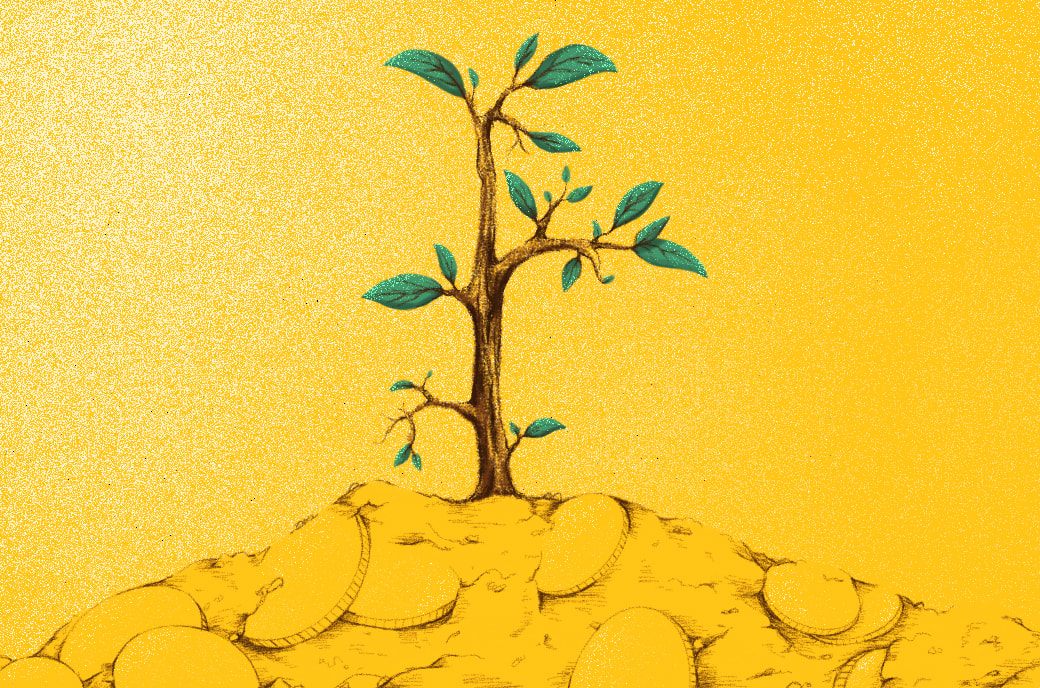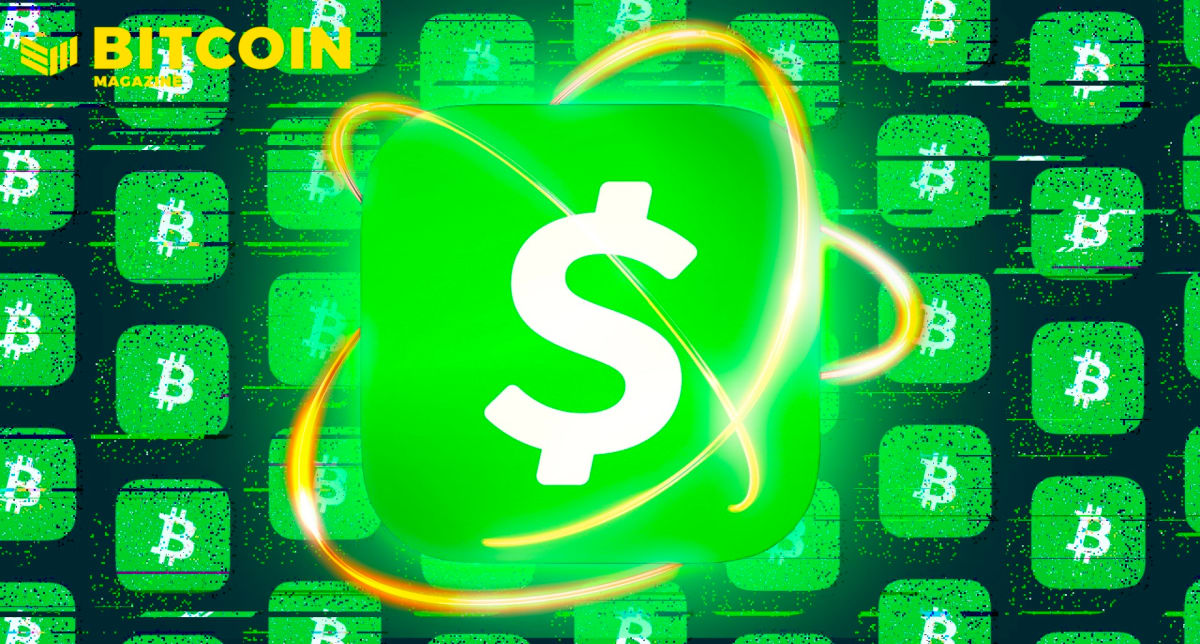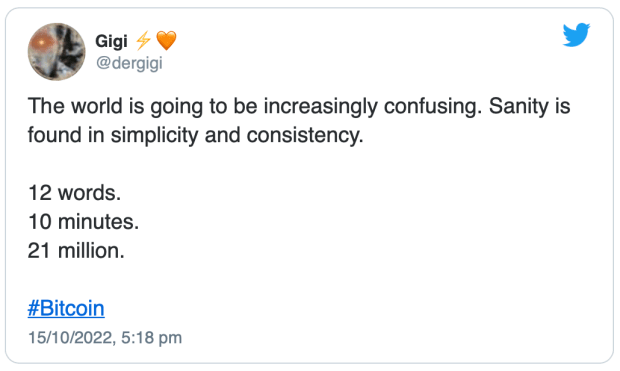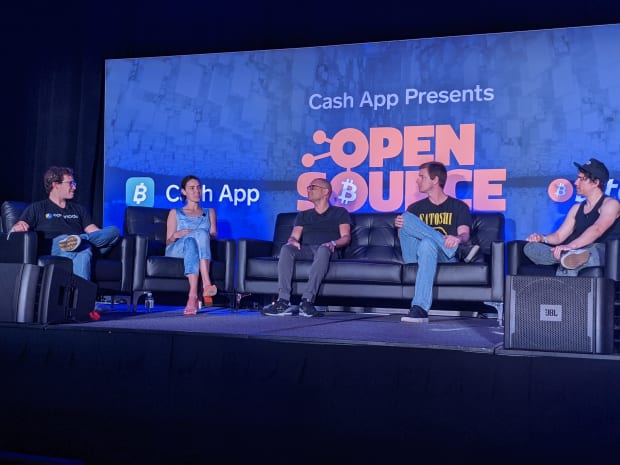Op Ed: Why We Can All Feel Thankful for Bitcoin
Thanksgiving Day is the perfect opportunity to turn our attention to the people, events and things that make our lives better and offer us reasons to feel grateful. While meeting family members around the dinner table is an excellent way of expressing appreciation, those of us who irreversibly fell down the Bitcoin rabbit hole may have a few extra reasons to show gratitude.
Why should one feel thankful for Bitcoin? Whether we like it or not, it has changed our views on finance, politics, law and economics. The simple act of learning how and why this decentralized, nongovernmental currency came to be certainly has transformative effects. Bitcoin is much more than economic theory: It indiscriminately empowers millions of people around the world to store value and transact. This is a reality to which even the mightiest of governments and transnational corporations are trying to adapt.
Without further ado, here are five reasons to feel thankful for Bitcoin.
1. Bitcoin Is Conservative, Robust and Predictable
In most countries around the world, changing the rules overnight is only a matter of majorities. Even in the United States, where checks and balances are supposed to bring about slow changes, the situation can become unpredictable in a matter of days. A member of Congress submits the draft for a bill, and then proceeds to convince elected officials from both the House of Representatives and the Senate to vote for it. If the required majority is attained, then the voted bill gets sent to the President to either sign or veto.
In the case of Bitcoin, changing the rules is a lot more difficult. It requires the consensus of a majority of user nodes and support by the miners. There is always a threat that the chain is going to split due to conflicting attempts to change rules, and, therefore, everyone is incentivized to play by the existing rules. And even in the absence of conflict, too much consensus about change may lead to faulty decisions that irreversibly destroy the value proposition of Bitcoin. It’s called the Nakamoto Consensus and it’s one of the finest uses of game theory we’ve ever seen in finance, politics and computer science.
Under this system of checks and balances, the general incentive is to be cautious and conservative. There is no reason to change something that works, and nobody is pressured to update their node client to support every BIP, feature or fix (for instance, SegWit adoption is still slow, there are plenty of bitcoiners who have never used the Lightning Network or a sidechain, and there are plenty of nodes running old versions of Bitcoin Core without validation issues).
Furthermore, BIPs and Core version updates are not law: If someone doesn’t want to use them or acknowledge their existence, then Bitcoin offers freedom to keep on running older clients and avoid some features. In the real world, you can’t opt in and out of respecting laws, and you can’t have a type of relationship with your government where you can opt to use (and pay taxes for) certain services. Being able to choose whatever suits your needs is powerful, and Bitcoin offers an important lesson about maintaining harmony while incentivizing self-interest.
Bitcoin reminds us why stability matters and why our money must not be changed. This is especially evident whenever somebody comes up with a proposal that fixes short-term problems. We should be grateful for Bitcoin because, in an era of global uncertainty and reckless political decisions, it offers robustness, transparency and predictability.
2. Bitcoin Teaches Us to Verify
In a world where formal education teaches us to defer to hierarchical authorities and have blind trust in their competence, Bitcoin perpetually reminds us to ask questions and check for ourselves. “Don’t trust, verify” might be a community meme, but it refers to a mindset which precedes individual sovereignty.
Bitcoiners are encouraged to only use software whose code is transparent and tested, to read the terms of service before onboarding exchanges, and to maintain a degree of skepticism in regards to people, companies and software. Also, running a full Bitcoin node is one of the most important aspects of the entire experience: Not only does it check the validity of your transactions and keep you on the right chain, but it also protects your privacy by storing all records on your own hard drives.
As means of verification, full nodes are the most efficient and affordable devices in the entire history of money. If gold and banknotes required human experts, special tools and formal ways of guaranteeing validity, Bitcoin nodes handle the operation faster and keep the rules in check. Thanks to them, we are certain at all times that no fake bitcoins get validated, and we keep inflation in check.
We should be grateful for this whole mechanism of quick verification, as it provides a strong foundation for the underlying economic system and also encourages us to become critical thinkers. Not having to worry about receiving a payment in fake money is an incredible innovation in itself.
As cypherpunk and Bitcoin 2020 keynote speaker Nick Szabo always says, “trust scales poorly.” That’s why, in the context of a decentralized network, we should always verify transactions, as well as other people’s intentions.
3. Bitcoin Is Scarce, Just Like Our Time and Money
When the supply of fiat money depends on the printing habits of central bankers, and the value of the resulting bills is backed by a seemingly endless cycle of debt, Bitcoin reminds us of a different era when money was scarce and backed by resource-intensive mining.
Everything around us is limited and scarce, including our own time in this world. Bitcoin teaches us how to embrace these limits and try to make the most out of them. Instead of falling in the “unlimited” trap of our consumption-based times, we moderate our time preference. We learn, once again, that saving matters and can bring great rewards in the long term. We rediscover our basic needs (as opposed to the never-ending wants that the advertisement industry creates), but we also find a balance between the extremes of frugality and consumerism.
As famously described by Aristotle, virtue is an equilibrium between two polarizing temptations. And when we are faced with a situation where we can either hold onto our sound money for a longer time or satisfy our wants and needs, we tend to make better decisions. If we approach the matter rationally, we won’t spend everything, but we won’t prevent ourselves from living decent and fulfilling lives either.
We should be grateful for Bitcoin, as it teaches us an important lesson about balance and virtue.
4. Bitcoin Is Irreversible
Often times, human action and the construction of norms and narratives will make us think that events can be erased from history and the collective memory of people. With enough authority and propaganda, lots of people can be convinced to replace their memories with official fairytales. Revisionism is a big part of our culture and it often escapes our scrutiny just because it’s nice and convenient.
Bitcoin is different in the sense that human actions taking place on the blockchain will always remain there. Transactions are irreversible, messages and files that get added to blocks will always be there once they receive six confirmations, and there is nothing anyone can do about it. If anything, Bitcoin is a reflection of human nature and an open history book that no government agenda can erase or sugarcoat.
If anything, Bitcoin is closer to the laws of nature (where actions cannot be reversed or forgotten by elemental forces) than it is to political records. To some, this can be frightening — especially from a financial perspective, where funds that get lost can never be recovered as easily as in the case of traditional banking. However, the situation only resembles the times when gold stashes had to be protected from thieves.
Yet the greater lesson to be learned is about responsibility. In a revisionist world, recklessness is incentivized by public narratives and the political decisions that change according to human judgment. In the case of Bitcoin, you can’t fool anyone that a transaction never happened. We should be grateful that an invention which promotes objective truth exists and functions outside of human subjectivity.
5. Bitcoin Is Unconfiscatable
Confiscation is a delicate topic and a recurring theme in our culture and history. Without appealing to governmental authority, we can define it as a forceful wealth transfer where one party finds legitimacy in taking another party’s possessions. In the greater context of nation states, confiscation is part of the rules and social contract.
Ideologically, confiscation is the polar opposite of respecting private property. By design, Bitcoin uses advanced cryptography to prevent any third party from seizing somebody else’s funds for any reason. This principle closely follows the cypherpunk ethos, where human rights always prevail over specific law enforcement. In the preamble of 1994’s “The Cyphernomicon,” Tim May presents a “Great Divide” between free speech, privacy and compliance with laws. Bitcoin takes this principle and extends it toward protecting private property.
In an era where political movements find various legitimations to seize wealth and confiscate, Bitcoin acts as a bastion of resistance. Instead of encouraging arbitrary confiscation, it creates dialogue and negotiation. If Bitcoin whales were to contribute to a cause, they would have to willingly donate part of their wealth. If the government wanted to take your bitcoins, then a process of deliberation or extortion is required — and this empowerment and sovereignty is unlike anything we’ve ever seen in our history.
We should feel grateful for the unconfiscatable nature of Bitcoin, it helps temper political urges and, to an extent, replaces use of force with voluntary actions.
6. Bitcoin Is Free Speech
Imagine a world where everyone can have their opinion heard as long as they respect formal rules about broadcasting their message, and they pay a fee. It’s exactly what Bitcoin offers us: As long as we are willing to make a transaction within the network’s rules and pay for miners to pick it up, we can make a political or financial statement to the entire world.
Most famously, the Genesis Block includes a political statement which explains why Bitcoin is needed: “The Times 03/Jan/2009 Chancellor on Brink of Second Bailout For Banks.” This led to an entire adoption movement which conflated Bitcoin with various human ideals for independence from government intervention and sovereignty.
In a recent academic research paper published by Justin S. Wales and Richard J. Ovelmen, Bitcoin is equated with free speech and the First Amendment of the U.S. Constitution. It’s refreshing to identify scholarly efforts to legitimize Bitcoin as a network for free speech (as opposed to the multiple mainstream media narratives which antagonized it throughout the years).
If anyone wants to make a written, political statement in a Bitcoin block, or simply send a transaction without facing censorship, then the network itself is entirely neutral and void of human biases. This uncensorability is the new paradigm in regards to freedom of speech, and we should feel grateful that we have it.
We Should Be Thankful for Bitcoin
Next time you think about the people and things that make you feel grateful, just close your eyes and imagine a world without Bitcoin: Central banks wouldn’t be pressured to temper their printing habits due to the threat of a free, disinflationary currency; we would be forced to put much more trust in authorities and institutions; we wouldn’t appreciate scarcity as much; and our free speech would be limited by the rules of governments and transnational corporations.
During this year’s Thanksgiving dinner, we shouldn’t necessarily talk about gains, end-of-year returns and other facts that sound like financial advice — and will certainly make a few family members roll their eyes. Instead, it’s much more important to focus on the unique technological advantages of Bitcoin and highlight Satoshi Nakamoto’s invention as a tool which preserves human rights, increases individual responsibility and protects free speech. We should all feel grateful for these.
This is an op ed by Vlad Costea. Views expressed are his own and do not necessarily reflect those of Bitcoin Magazine or BTC Inc.
The post Op Ed: Why We Can All Feel Thankful for Bitcoin appeared first on Bitcoin Magazine.









